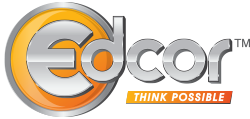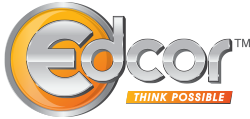EDCOR NEWSLETTER
Is covering micro-credentials under your TA policy a good idea?
Micro-credentials are skill-oriented or competency-based short-term courses that are often flexible and adapt to the student’s style of learning – online, face-to-face, or hybrid. They are intended to be fast, accessible, and specialized. The skills learned are validated through assessments and evaluations, and culminate in recognized proofs of achievement such as certificates or certifications. Many institutes of higher learning offer micro-credentials. Although not all micro-credentials are digital, a popular term called alternative digital credentials (ADC) has been used to define micro-credentials that earn digital certificates and badges. Players like edX, Coursera, and Udacity have contributed to the advent, adoption, and evolution of massive open online courses (MOOCs) that fall under the micro-credential umbrella. They may or may not be credit-bearing (credit earning) and/or stackable (connected credentials that make a coherent academic pathway). Also, based on where they are earned from, micro-credentials are often accepted by institutes of higher learning in the U.S. as credit towards a degree.
Covering micro-credentials under a company’s TA policy makes it holistic and marks it beneficial for a wide range of employees for whom a degree is not the optimal solution to fill skill gaps. This includes employees who already have higher education degrees, and also those who can’t commit to a degree right away based on their current life circumstances. Often these populations are either overlooked or shy away from upskilling because the traditional route is not suitable for them. This leads to underutilization of education benefits, which is undesirable for employee engagement and retention in the labor market that we are currently in.
So, why is it that some organizations are iffy about including micro-credentials in their TA policy?
CEO’S CORNER

A key – and often overshadowed – advantage of education benefits is the development of talent and leadership pipelines. Tuition assistance provides employees with the opportunity to acquire contemporary knowledge and skills essential for leadership roles. It develops a workforce that is equipped with cutting-edge industry knowledge and best practices, which can improve the organization’s overall performance. A holistic tuition assistance policy that includes short-term courses and micro-credentials is a step forward in the direction.
You need to ask yourself if you failed at leadership development if there aren’t people to promote from within. Outside hires take longer to commit to the organization and are often more expensive resources. Research has shown that despite the higher costs, their performance is lower at least during the first year and they tend to quit more easily. Promoting from within the organization fuels growth and collective organizational success. So, what are you waiting for?
Let’s future together!
Adrienne L. Way, Edcor Owner, President, and CEO
INDUSTRY ARTICLES
Read these articles to see how Edcor partner schools are leading the way in higher education with innovative programs and ideas.
- Why study dispute resolution?
- Transfer to save time: Fast-track your degree prerequisites with individual courses
- The Many Benefits of Hands-On Lab Activities in Technology Education
- What is the role of Cybersecurity insurance in 2023
- Information technology degree jobs: 5 in-demand careers to consider
ARTICLES OF INTEREST
Gain information and insight from Edcor’s partner schools in these articles:
- Should I go back to school?
- Level Up Your Skills with a Professional Development Plan
- What Is a Computer Hardware Engineer, and Is It the Right Career for You?
- Discover how big data can lend businesses a competitive edge
- What can you do with a bachelor’s in psychology?
- What is Lifelong Learning? Four Benefits You Don’t Want to Miss
SCHOOL NETWORK UPDATES
Edcor partner schools respond to the needs of client employees with new course offerings and programs. Read about the steps these schools are taking to serve their students.
- Explore On-demand webinars from Penn State and learn more about their programs
- Learn About Discounts on Workforce-Relevant, Online Degrees at CLU
- Explore Etown College’s Trauma-Informed Practice Graduate Certificate
- Concordia’s RN to BSN completion program could be right for you
- CIAT offers IT degrees in Cybersecurity, Data Analytics, Software Development and more
- Endicott College Launches New Institute for Applied Behavioral Science
- Grow your skill set with a business & technology-infused & accelerated MBA
- Education to Advance your Careers at UMass Global: Upcoming Info-sessions
- UAF eCampus Now Offering Online Social Work Degrees



